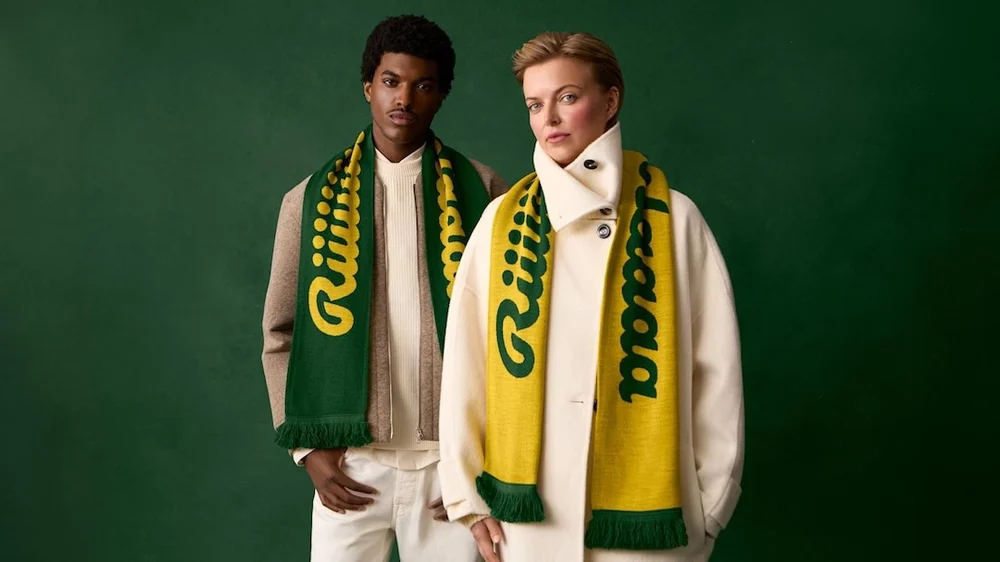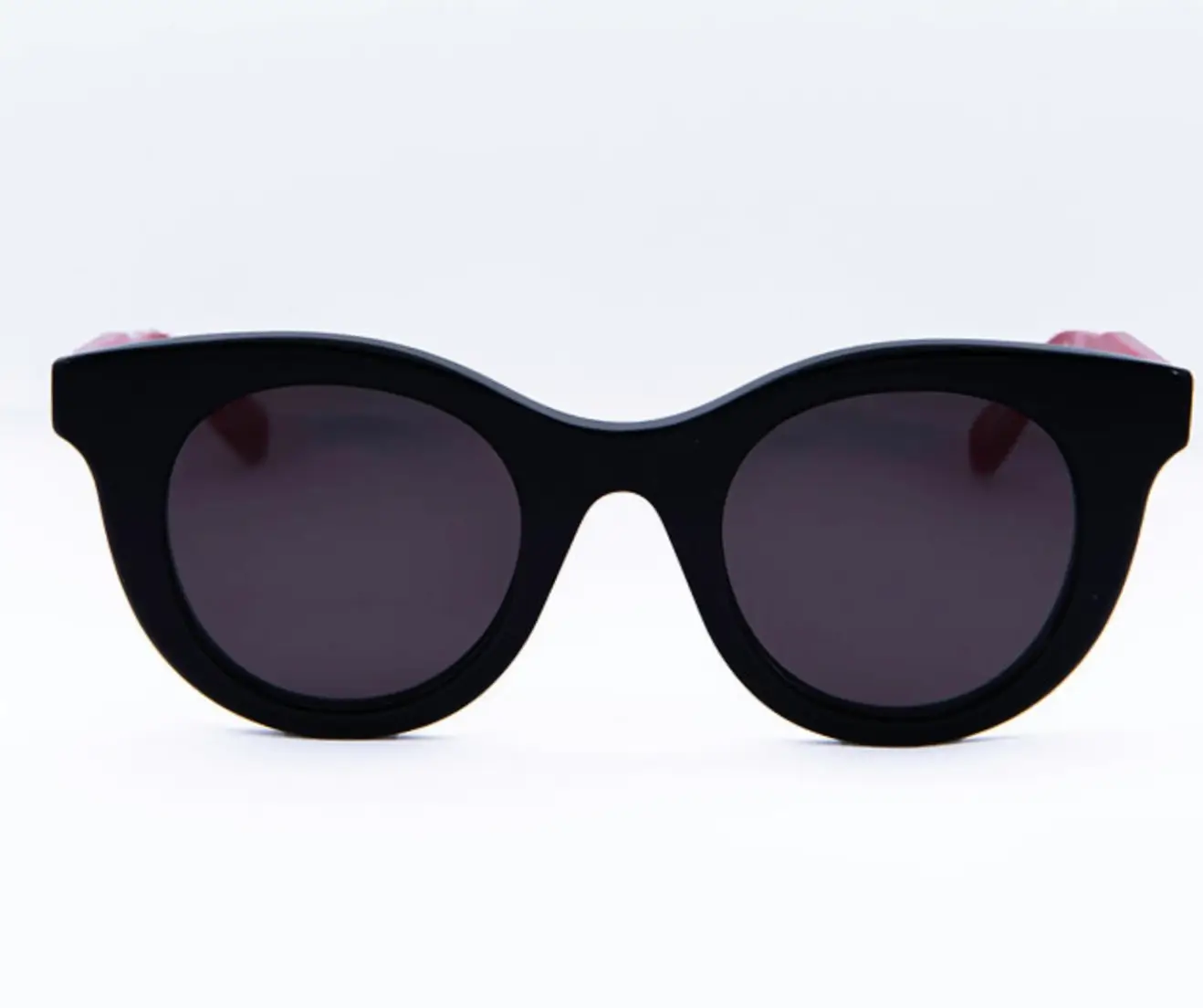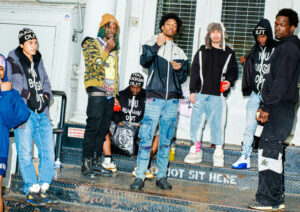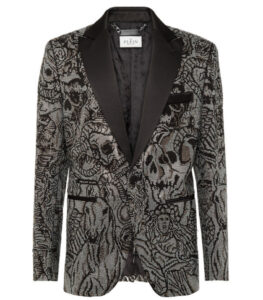In the ever-crowded landscape of seasonal marketing, most brands fall into predictable rhythms—cozy visuals, cinnamon-spiced taglines, a palette of reds and whites that signal the arrival of cold weather. But Ricola, the Swiss herbal cough drop icon, has chosen to cut through the winter noise in a way that no one saw coming. Their new campaign introduces scarves that smell like Ricola cough drops. It is part fashion accessory, part wellness gesture, and part surreal brand experiment that feels both humorous and oddly thoughtful.
This isn’t just merch; it’s an aromatic intervention. A textile infused with the essence of menthol, herbs, and that unmistakable Ricola fragrance—a scent so specific, so instantly recognizable, that it practically screams “I’m fighting something.” The result is a winter accessory that is both wearable and atmospheric, a soft cloud of botanical comfort that turns the simple act of bundling up into an immersive sensory moment.
evolve
Ricola is no stranger to leaning into its quirkiness. The brand has always wielded humor as a core part of its identity, from the iconic yodel advertising to its whimsical packaging. But the scented scarf project marks a shift into a new, slightly more elevated territory: the connection of wellness, fashion, and olfactory branding.
For decades, Ricola’s identity has rested on its natural Swiss herbs—a blend of lemon balm, peppermint, elderflower, sage, horehound, and others that form the core of its signature taste and smell. What this campaign does is translate that identity into material culture. Instead of simply ingesting Ricola, you can wear Ricola. It’s a bold move that transforms the brand’s sensory profile into something atmospheric and ambient, extending the product experience beyond the mouth and into the everyday environment.
By infusing scarves with the distinctive scent, Ricola turns its heritage into a wearable mood, something you can wrap around your throat not unlike the way you would dissolve a cough drop in your mouth. It’s clever, strange, and unmistakably on brand.
aromatherapy
This campaign isn’t simply a gag—it taps into a real cultural moment around scent and wellness. In the past decade, aromatherapy has gone mainstream. Essential oils, eucalyptus showers, peppermint diffusers, lavender sprays, menthol rubs: wellness culture increasingly merges smell with the promise of relief. Ricola’s scarf leans into this logic while maintaining its signature humor.
There is something undeniably comforting about the Ricola smell. It carries associations with soothing the throat, breaking congestion, managing winter discomfort, or, at the very least, being cared for. The scarf becomes a psychological placebo: even if it doesn’t medically heal you, it certainly feels like it’s trying.
Wrap it around your neck and the scent hovers close—subtle, not overpowering, but unmistakably herbal. The effect is reminiscent of walking into a warm apothecary or opening a fresh lozenge while standing in a drafty bus stop. It warms the senses, not through temperature, but through association.
View this post on Instagram
flow
What makes the Ricola scented scarf so compelling is that it delivers personality in an age of bland, hyper-minimalist branding. Winter accessories typically lean toward neutral utility—grey knits, black puffer hoods, beige wool. Ricola throws something unexpected into the mix: scent as an extension of identity.
The scarf is not just a playful holiday item; it’s an object that forces a reaction. Wear it in public and people notice. They lean in slightly, confused and amused, trying to place the familiar herbal aroma. It becomes a conversation starter, a social prompt, a shared cultural reference point that triggers memories of childhood winters or sick days spent sipping hot tea.
Even more interestingly, Ricola positions the scarf as equal parts fashion and function. The materials are soft, the colors are on-brand without veering into parody, and the design is clean enough to blend into a winter outfit rather than stand out as novelty merch. It’s the rare promotional product that feels intentionally designed instead of purely distributed.
show
Winter breeds rituals: tea, balms, layered clothing, hot water bottles, chest rubs, humidifiers. The human response to cold is fundamentally sensory. Ricola taps into this seasonal instinct by offering an accessory that interacts with the senses on multiple levels—tactile warmth, olfactory comfort, and psychological nostalgia.
The scarf becomes emblematic of the winter season itself. It acknowledges the reality that cold weather comes with discomfort. It doesn’t pretend that winter is all romantic snowfall and mulled wine; it leans into the cough, the congestion, the scratchy throat, the desire to feel soothed.
And by doing so, it positions Ricola as not just a remedy but a companion through the long freeze.
idea
The success of this campaign lies in its ability to blur the line between the absurd and the clever. A scarf that smells like cough drops should, by all logic, be ridiculous. And yet, the execution is thoughtful enough—and the scent recognizable enough—that it becomes an inspired extension of Ricola’s identity.
Most importantly, the campaign refuses to take itself too seriously. It embraces whimsy without sacrificing design integrity. In an era where many brands chase seriousness and aesthetic austerity to appear premium, Ricola doubles down on warmth, humor, and cultural familiarity.
It’s also a prime example of experiential branding. Rather than telling consumers how soothing Ricola is, the brand creates an atmosphere of soothing. Rather than relying solely on taste-based memory, it activates the nose. It turns the literal experience of smelling Ricola into a wearable environment—expanding the product’s imaginary world far beyond its traditional boundaries.
fwd
What Ricola’s project gestures toward is a future in which scent becomes an active, intentional part of product design. While perfumes and candles have long dominated scent marketing, very few brands consider how smell can be integrated into wearable objects. Ricola’s scarf hints at a potential new category: aromatic fashion.
Imagine cold-weather gear infused with eucalyptus or peppermint. Imagine cozy garments designed to evoke relaxation or clarity. Ricola’s experiment suggests that our senses could become richer, more layered elements of clothing—not merely visual or tactile, but olfactory.
Of course, Ricola’s scarf is not pitched as high concept; it’s pitched as fun. But quietly, beneath the marketing humor, is a real design insight about the power of scent to shape lived experience.
fin
With its scented scarf, Ricola does something delightfully improbable: it makes winter feel a little more high-spirited. The brand takes a familiar smell—one deeply tied to comfort and care—and transforms it into a wearable experience that sits at the intersection of fashion, wellness, and nostalgia.
In a season dominated by freezing winds, grey skies, and the looming threat of seasonal illness, Ricola offers a new kind of warmth: the warmth of a memory, the warmth of a scent, the warmth of being gently, humorously reminded that even winter’s discomforts have their comforts.
No comments yet.








